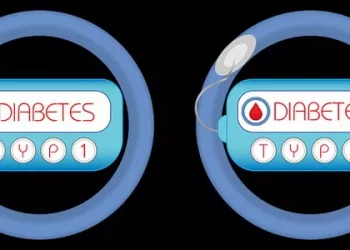Weight Loss Drug Also Helps with Mental Health? Study Finds “Semaglutide” Benefits Mental Well-being
A recent study in Switzerland has revealed that the widely used weight loss injections in recent years may not only aid in weight management but also have a positive impact on mental health, improving the quality of life for patients with major depressive disorder, bipolar disorder, and schizophrenia. The research, presented at the recent European Obesity Congress in Spain, has attracted significant attention from the medical community.
This study focused on the “GLP-1 receptor agonist” class of drugs, with the most common being semaglutide, sold under the brand names Ozempic and Wegovy. The research indicates that these drugs, originally developed for diabetes, not only slow down digestion and suppress appetite but also show potential antidepressant and anti-anxiety effects. Compared to insulin and other anti-diabetic drugs, GLP-1 receptor agonists are more effective in improving patients’ mood, mental health, and overall quality of life.
Dr. Sigrid Breit from the University of Bern, who led the study, stated that the anti-inflammatory and antioxidant properties of these drugs help reduce neuroinflammation, thereby improving mental state. For groups with severe mental illness who are taking medications, GLP-1 drugs are both safe and effective, with no signs of deteriorating mental health or increasing the risk of hospitalization.
A total of five clinical studies have shown that “GLP-1 receptor agonist” drugs can effectively improve the mental state of patients with schizophrenia spectrum disorders, major depressive disorder, and bipolar disorder. For adults without mental illness, the mental health benefits of weight loss injections are also superior to traditional diabetes drugs.
Experts in the field of mental health in the UK have affirmed this research. Dr. Ed Beveridge, the head of physical health at the Royal College of Psychiatrists, told The Guardian that many psychiatric patients struggle to control their weight due to their condition or side effects of medications. If clinically determined to be suitable for using semaglutide, they should be given priority for prescription.
Rachel Hastings-Kaplan, the policy manager at the charity “Rethink Mental Illness,” emphasized that patients with severe mental illness often have their life expectancy shortened by about 20 years due to preventable chronic diseases such as diabetes. “They need to take medications that affect their metabolism to control their condition, so these weight loss injections could potentially bring an important health turnaround for them.”
However, Kaplan also cautioned that weight loss injections are not a panacea and should be regarded as a short-term measure. She called on the government to invest more resources in developing more effective treatments with fewer side effects. She added, “These injections must be prescribed by a doctor, and extra caution is needed when used in those at risk of eating disorders.”
The Institute for Fiscal Studies, a UK think tank, estimates that approximately 13% to 15% of the working population currently suffers from long-term mental health or behavioral problems. By the end of 2024, two million people had used the government’s counseling services. Researchers hope to further expand the application scope of these drugs in the future to improve the overall physical and mental state of patients.
























